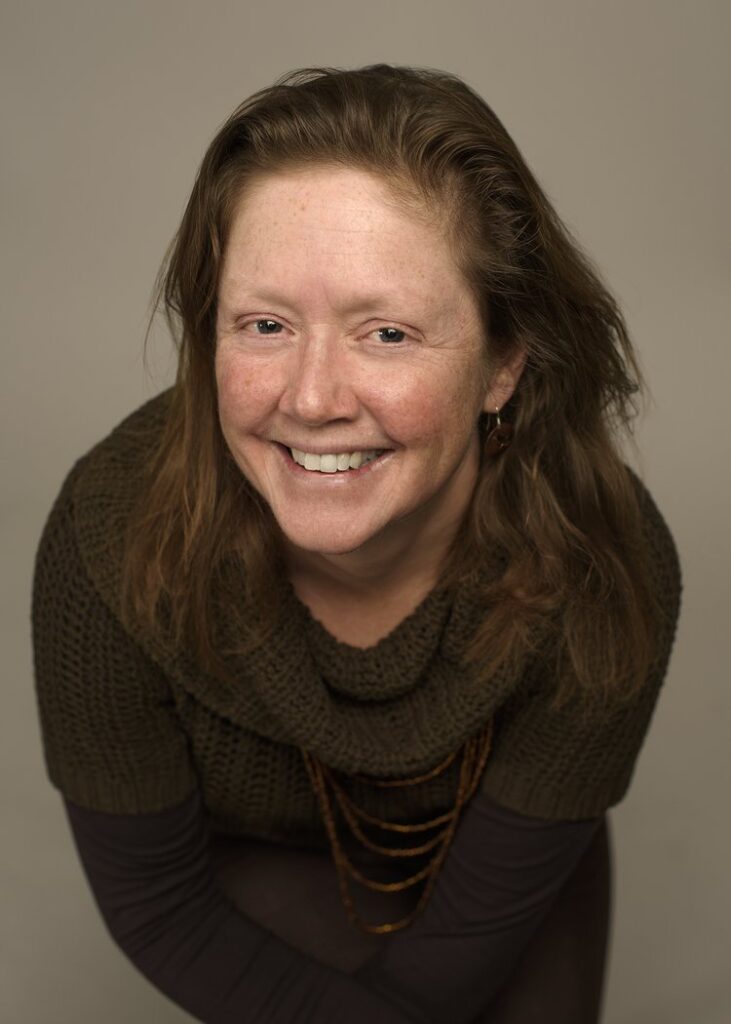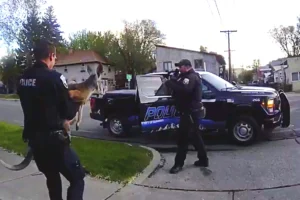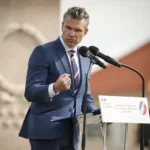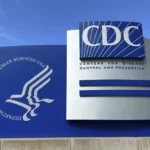UW Community Health Researcher Pursues Food Justice and Security
Christine Porter helps communities around Wyoming create their own public health
- Published In: Other News & Features
- Last Updated: Nov 25, 2022

By Sarah Scoles
Special to the Wyoming Truth
When Christine Porter, a community health scholar, conducts research, she doesn’t like to sit in an ivory tower: She prefers to work directly with the communities and activists who live and breathe the health issues she’s investigating–like how justice, equity, sustainable food systems and food security are intertwined. If people have food security, that means they can’t reliably access enough affordable, nutritious food. In Wyoming, around 11% of households can’t provide enough food for one or more household members, according to the U.S. Department of Agriculture.
Using a philosophy called “community-based participatory action research,” Porter’s work aims to empower the public to create its own health–rather than just having policies and practices come down from on high, or having research happen in an academic bubble. She often works with Native American communities, and in 2020, she won the Spirit of the Community Award from the University of Wyoming’s Native American and Indigenous Studies Department.

Porter, 51, professor and Wyoming Excellence Chair in UW’s Community and Public Health Department, came to the state in 2010 after earning a doctorate in community nutrition from Cornell University. She became interested in food systems during her doctoral work after realizing that people can face both hunger and obesity. Previously, Porter studied biology at the University of Maryland and then spent several years in Fiji, starting with a stint in the Peace Corps. There, she sometimes dined with a farming family who produced many of their own ingredients and whose company led Porter to think about the origins of a meal’s components.
The Wyoming Truth caught up with Porter to discuss her projects in Wyoming, local food systems and the next generation of food and agriculture researchers. What follows are excerpts from the interview.
Your faculty page quotes scholar Kurt Lewin. Who was he, and what was his philosophy that now informs your research?
Porter: He was an education theorist who said that you can’t learn just by studying: You also have to do something. But doing something alone without a chance to reflect is also not going to teach you that much.
Some academics only reflect and don’t do the action. And it really inhibits our learning. And then some activists have no time for anything except putting out fires–no time at all to reflect. So we would all do better if we had a little bit of both.
How do you apply those ideas to your own work in public health?
Porter: I am on the academic side, so I work pretty hard to do action-focused research. Like trying something out that community health leaders are interested in and turning it into a research project. That way, I also get to hang out with and learn from the community health leaders who are closest to the issue.
Some of my projects include intentional time for activists to have a chance to stop and reflect and write and codify the wisdom and experience they’ve gained–so it’s not just academic voices we hear and so that activists get that pause, too.
Tell me about one of your first big projects that included both the action and the reflection, and both academics and activists.
Porter: Before I even technically started in my job at UW, I applied for a five-year, $5 million grant for a project called Food Dignity.
The call was to learn from the work that people were doing for food justice and food security in the United States. So I recruited five community-based food-justice organizations. I was like, ‘I need to find partners in Wyoming because this is where I’ll be going as a professor next year.’ That is how I identified Blue Mountain Associates in Wind River Reservation and Feeding Laramie Valley and invited them to become partners.
The grant supported a half-time community organizer in each place, and each organization was awarding mini-grants directly to individuals for their solution ideas, which included things like restoring various forms of Indian corn and sharing the seeds, root cellars in Wind River, a lot of gardening and expanding honeybee-keeping.
Then you took on another project, called Growing Resilience. What was the goal of that one?
Porter: That grew right out of Food Dignity. Blue Mountain Associates leadership found that way more people wanted to start or expand their gardening than they had the expertise or the money to get started.
And so we got National Institutes of Health money to answer the question about what home gardens did for health outcomes. In the study, half of the families got gardens right away, and half had to wait for two years. And we did health assessments, including blood draws and weight and height and blood pressure, every six months for two years, with each of the almost 100 families. We’re in the final phase right now of analyzing the data, but we’ve presented some of our preliminary results. The starting health status, especially among adults, was quite poor, but in keeping with the enormous health disparities that our inequities have imposed on especially Native Americans. And it was a real win that the families who participated, on average, maintained their health.
From your work with Blue Mountain Associates, what health problems face the Wind River community? How did you expect both Food Dignity and Growing Resilience to help address them?
Porter: When I begged Dr. Virginia Sutter, the founder and director of Blue Mountain Associates, to become a partner on the Food Dignity proposal to USDA, I told her that project was about sustainability and food insecurity. Given that no U.S. communities know more about both than Native American ones, I felt we could not do it without them.
Both projects were about supporting Northern Arapaho and Eastern Shoshone solutions to problems they found most pressing and ensuring that the rest of us—in the projects, in the country—learned from their work and expertise.
Supporting gardening was the main point of Growing Resilience, not the health measures we collected. That said, when our collaboration found food insecurity rates among the participating families that were 10 times that of the U.S. average, I was horrified. This country should be responding to that as a national emergency, because it is one. These responses need to include investing in solutions Indigenous nations have employed for millennia and, most recently, in food sovereignty movements today.
What are you working on now?
Porter: I’m part of a team writing a $20 million USDA grant to diversify who works in U.S. food and agriculture. University of Wyoming will be in partnership with six universities and two national food system networks. Out of the six universities, UW is the only one that’s not a minority-serving institution. But all of the support will go towards supporting Native American students.
It will involve scholarships for BIPOC [Black, Indigenous and people of color] students and a lot of training, networking and travel for students. It would also include “community fellows”–kind of like activist sabbaticals–at each institution.
How does Wyoming’s particular public health issues influence your research?
Porter: The things that Wyoming is worst on, in terms of community health outcomes, are death by suicide, chewing tobacco and occupational death rates. So, in that sense, if I was adapting my work to Wyoming, I would work on one of those three issues. However, the thing that I have been able to do in Wyoming is increasingly focus on the local producers and local food networks. I want to support local farmers and ranchers being able to make a living, while also making the best of our foods available to everyone, including those who can’t pay the prices that farmers and ranchers need to make a living.
My message would be to figure out who are your local farmers and ranchers that you can buy from. It keeps the money in the community, supports the best food we have to offer, supports our local economy and keeps the dollars circulating in our home economy. And you get way better food for it.













